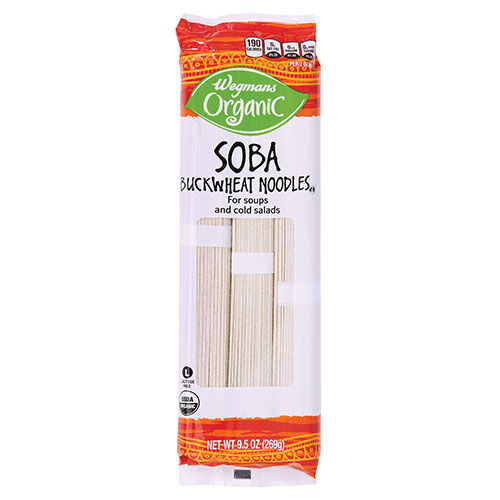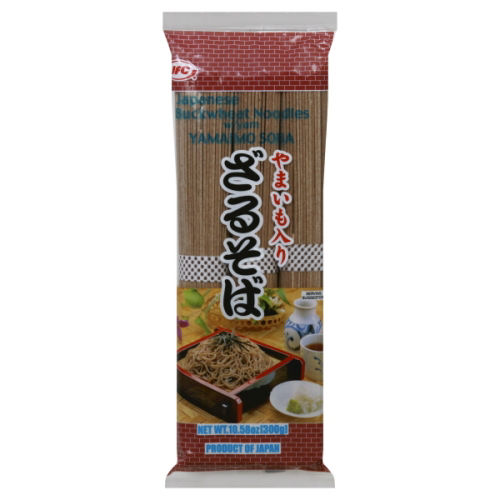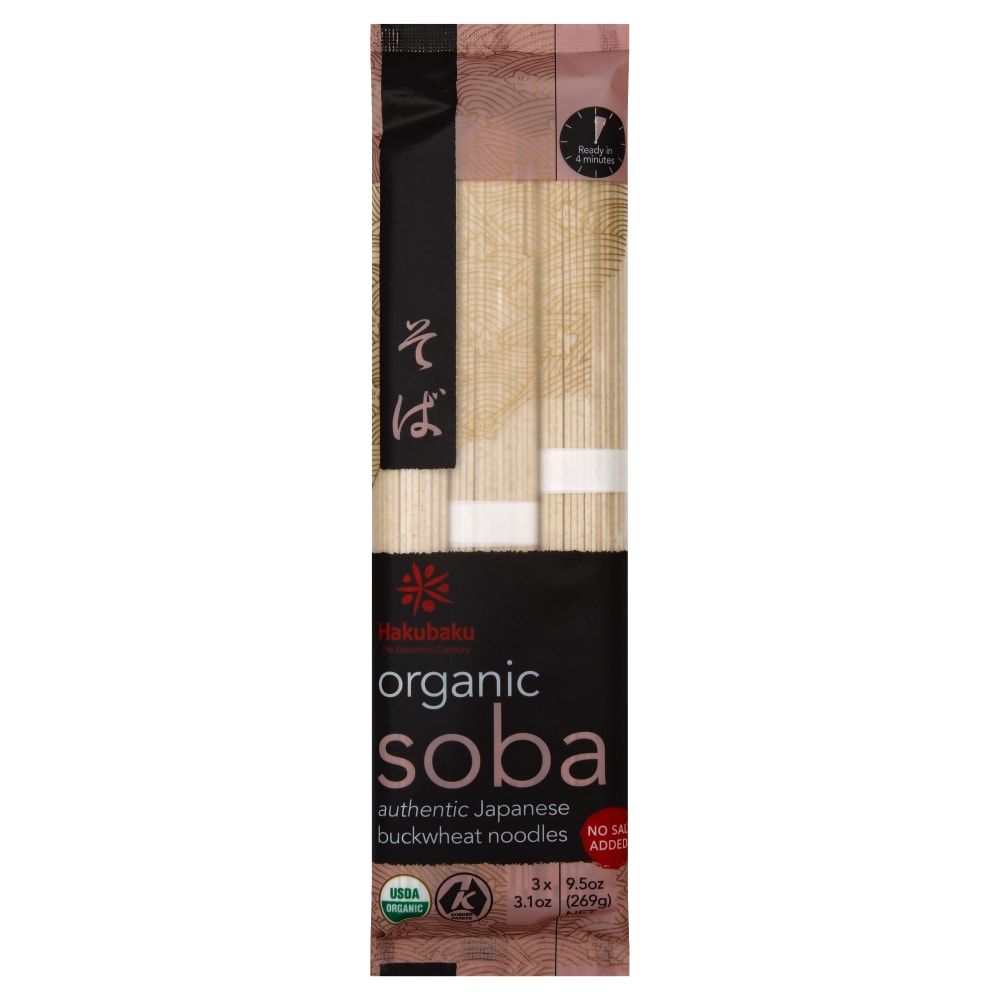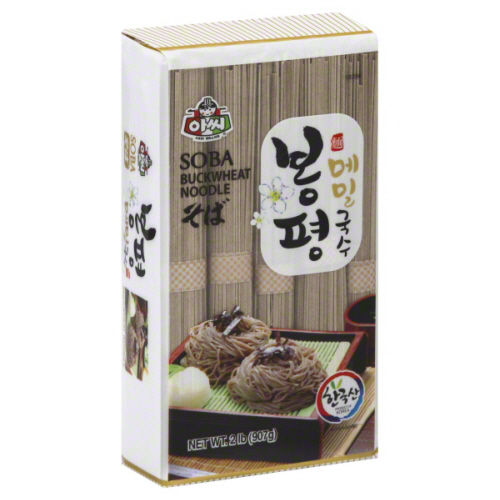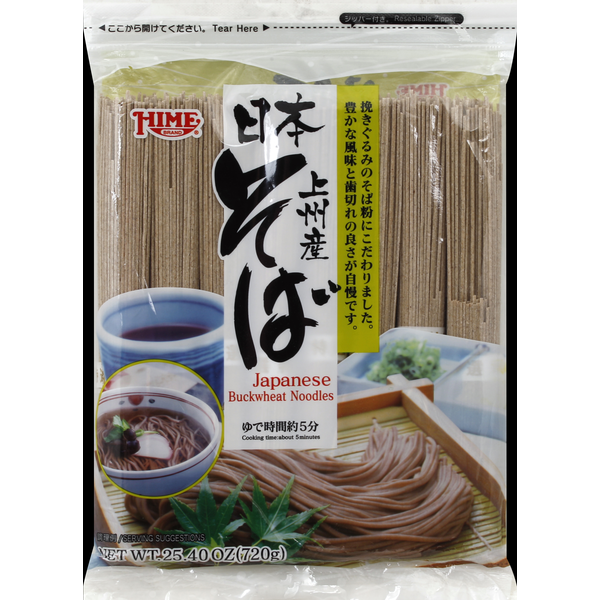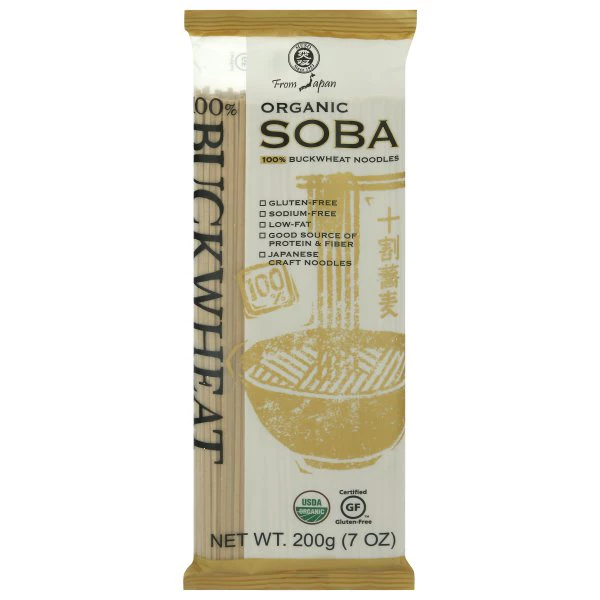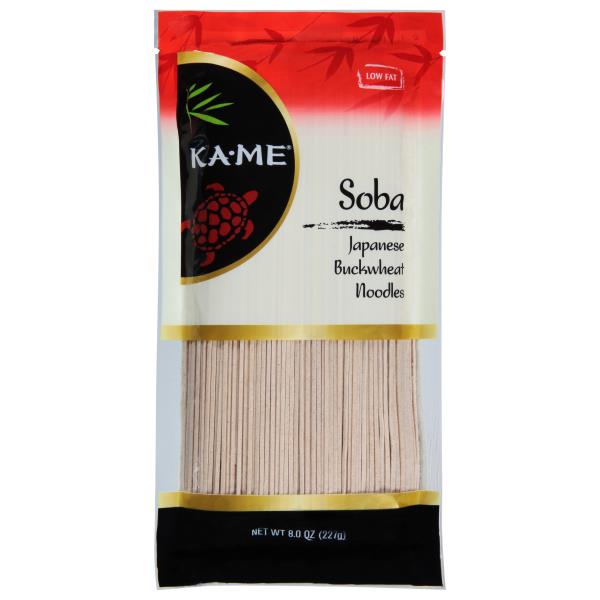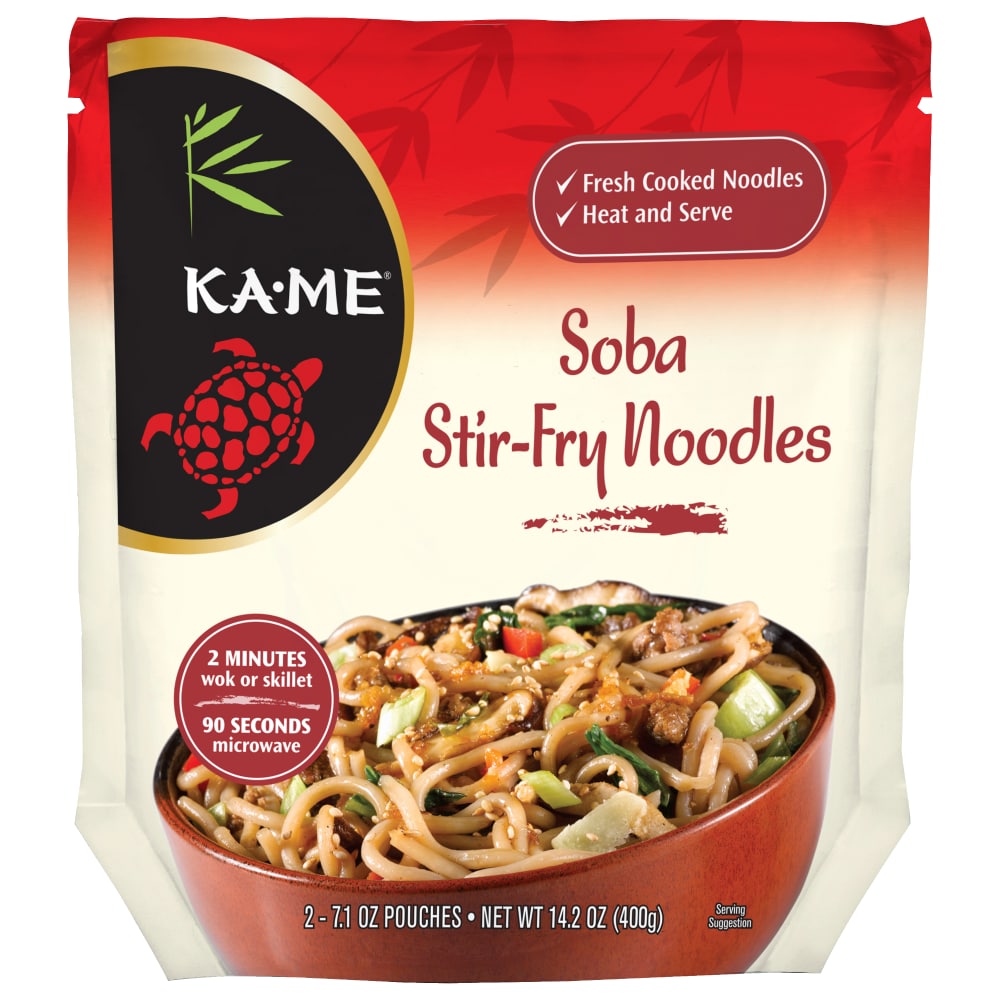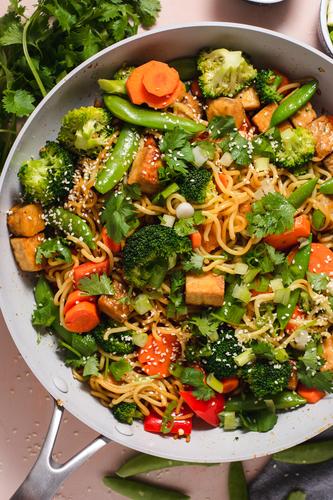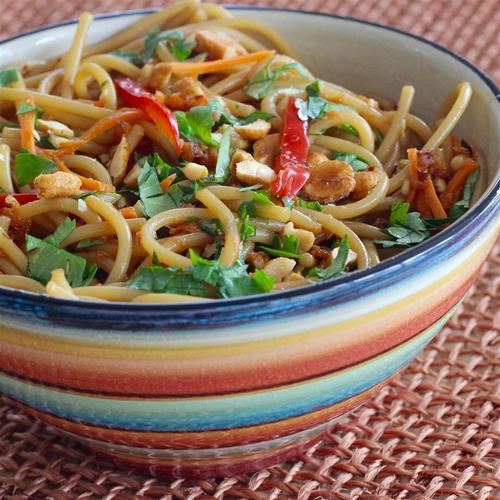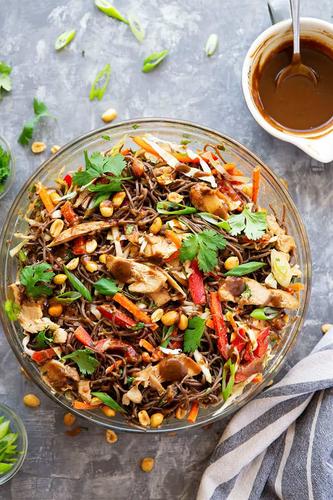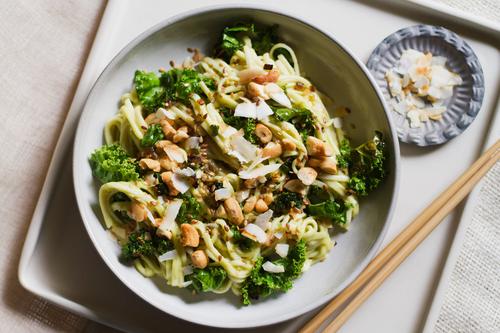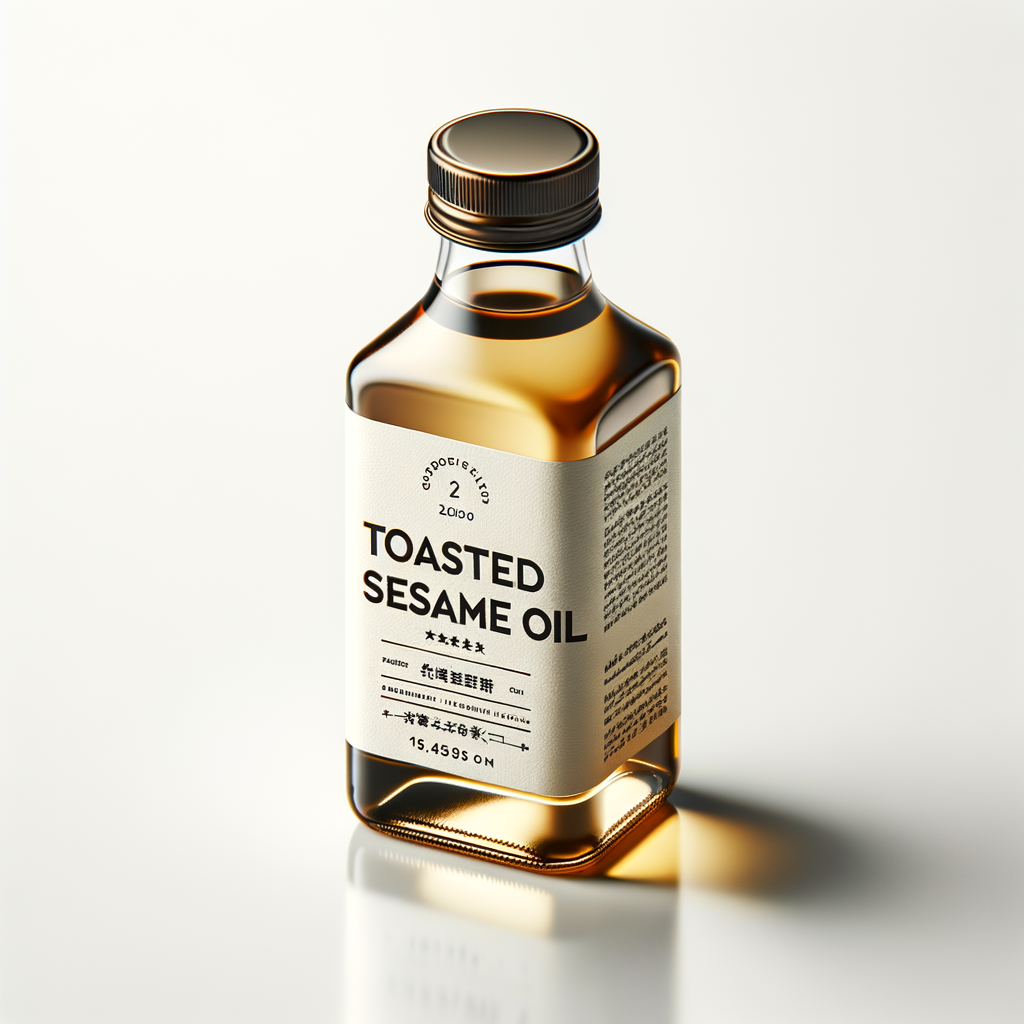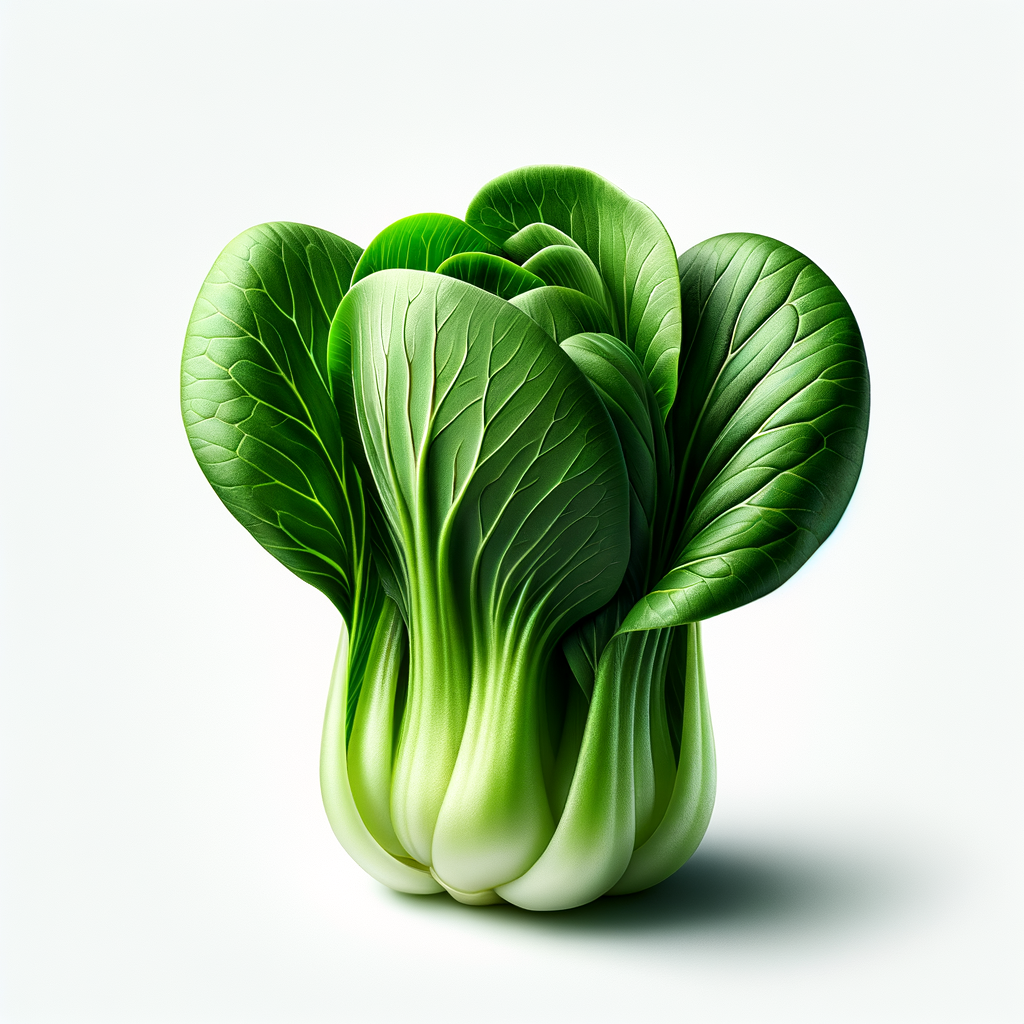MAIN DISHES
SALADS
SIDE DISHES
Soba Noodle
Soba noodles are a type of thin Japanese noodles made from buckwheat flour, which gives them a distinct nutty flavor and light brown color. They are widely consumed in Japan and have gained popularity globally due to their unique taste and health benefits. Often served either hot in a broth or chilled with a dipping sauce, soba noodles provide a versatile and delicious ingredient for a variety of dishes.
In addition to being gluten-free, soba noodles are rich in vitamins, minerals, and protein, making them a nutritious alternative to traditional wheat-based noodles. They are particularly appreciated by those following a gluten-free or health-conscious diet, and can be easily incorporated into a range of recipes, including salads, stir-fries, and soups.
83%
CARBS
1%
FAT
16%
PROTEIN
276 Soba Noodle Products
Wegmans Organic Soba Buckwheat Noodles
JFC Buckwheat Noodles, with Yam, Japanese
Hakubaku Organic Soba Noodles
HANA Noodles, Japanese Buckwheat
Lotus Foods Organic Soba Rice Noodles
Assi Assi, Soba Buckwheat Noodle
J-Basket Dried Buckwheat Soba Noodles, 25.40 Ounce
MUSO From Japan Organic Soba 100% Buckwheat Noodles
Ka-Me Buckwheat Noodles, Japanese, Soba
Ka-Me® Soba Stir-Fry Noodles
Used In 7 Recipes
Soba Noodle Is Frequently Used With
Soba Noodle FAQ
Soba noodles, hailing from Japan, are revered for their unique nutty flavor, versatility, and nutritional profile. Being made primarily from buckwheat flour, they're naturally gluten-free and packed with vitamins, minerals, and proteins. Common mistakes when cooking soba noodles include overcooking, not rinsing after boiling, and picking the wrong variety for your dish. To maximize the potential of your soba noodles, remember these tips: always cook them al dente, rinse thoroughly under cold water if serving chilled to remove excess starch and prevent stickiness, and differentiate the two main types - 'jyuwari soba' (100% buckwheat, full-flavored and preferred with cold dishes) and 'nagano-style' or other mixed soba (with added wheat flour, more resilient and better with hot dishes). Another hack is to save the water used to boil soba noodles, known as 'soba yu', which is full of nutrients and can be added to sauces or broths.
Can you eat soba noodles cold?
Do I need to rinse soba noodles?
How do I prevent soba noodles from being mushy?
Are soba noodles gluten free?
What are soba noodles good with?
Can soba noodles replace spaghetti?
Are soba noodles healthy?
Why are my soba noodles sticky?
Do I need to soak soba noodles before cooking?
Why do I save the soba noodle boiling water?
Expiration & Storage Tips
When does soba noodle expire?
Unopened, soba noodles can last up to a year when stored properly in a cool and dry pantry. The printed expiry date on the package can help guide you, but they are generally safe to consume beyond this date if they have been stored correctly and show no signs of spoilage. Once opened, the noodles should ideally be used within a week. If you're not planning to consume them immediately, consider freezing them! Frozen soba noodles can last up to two months. Just be sure to defrost them properly by placing them in the refrigerator overnight before using.
How do you tell if soba noodle is bad?
Spoiled soba noodles can exhibit several signs. Firstly, check for mold. Any discoloration or furry patches are a clear sign of mold and the noodles should be discarded. Unpleasant or unusual odors are another sign the noodles have gone bad. Additionally, if the noodles are sticky or have clumped together, it is likely that they have started to spoil. When in doubt, it's always safer to throw them out!
Tips for storing soba noodle to extend shelf life
• Keep your soba noodles in a cool, dry and dark pantry, away from heat and sunlight. This will help them maintain their quality for longer.
• After opening the package, consider storing the noodles in an airtight container to protect them from moisture and pests.
• If you only need a portion of the noodles, try to handle only that amount and keep the rest untouched to prevent possible contamination.
• For even longer storage, you can freeze soba noodles. However, ensure they are well protected in a freezer-safe bag or container to prevent freezer burn. Always defrost frozen noodles in the refrigerator overnight before using.
EXPIRES WITHIN
19 - 29
MONTHS
Substitutes

Edamame Spaghetti

Green Tea Soba Noodle
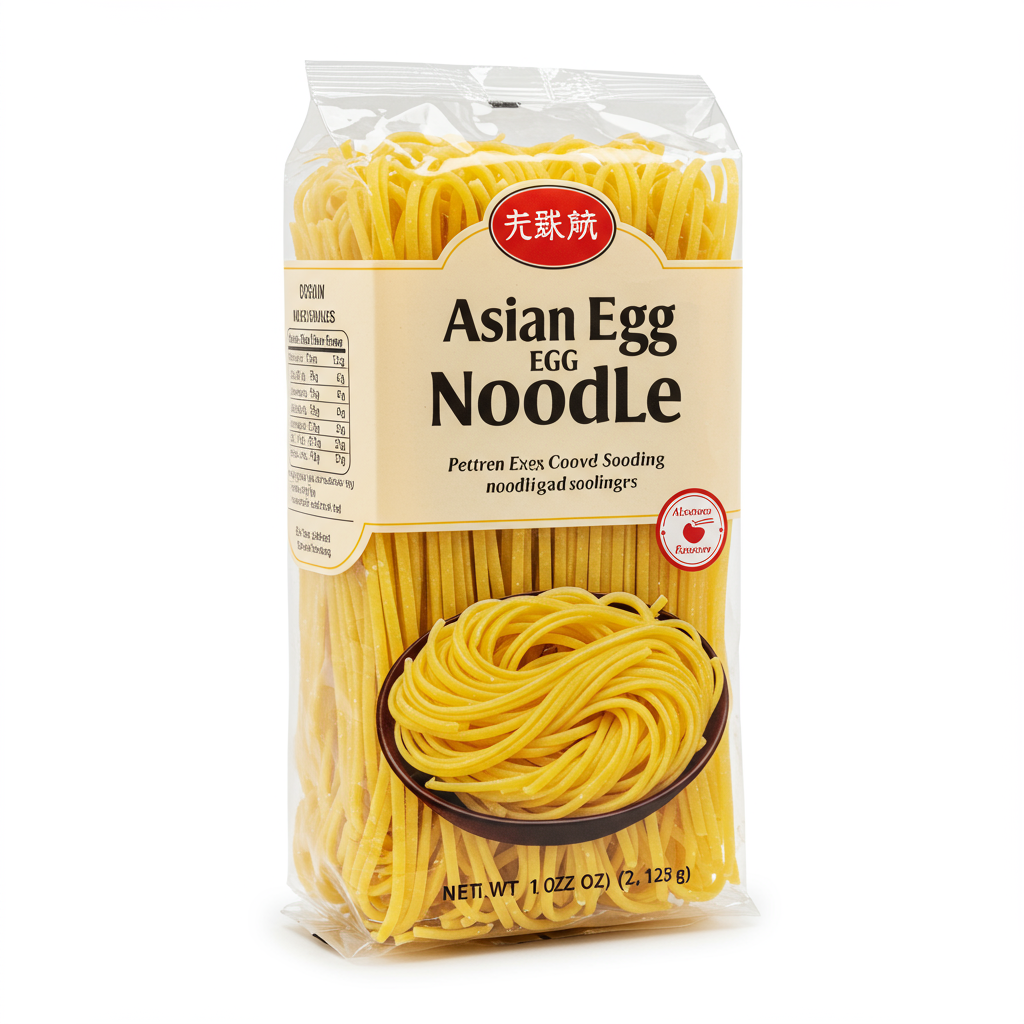
Asian Egg Noodle

Udon Noodle

Rice Noodle

Rice Vermicelli

Glass Noodle

Shirataki Noodle

Chow Mein Noodle
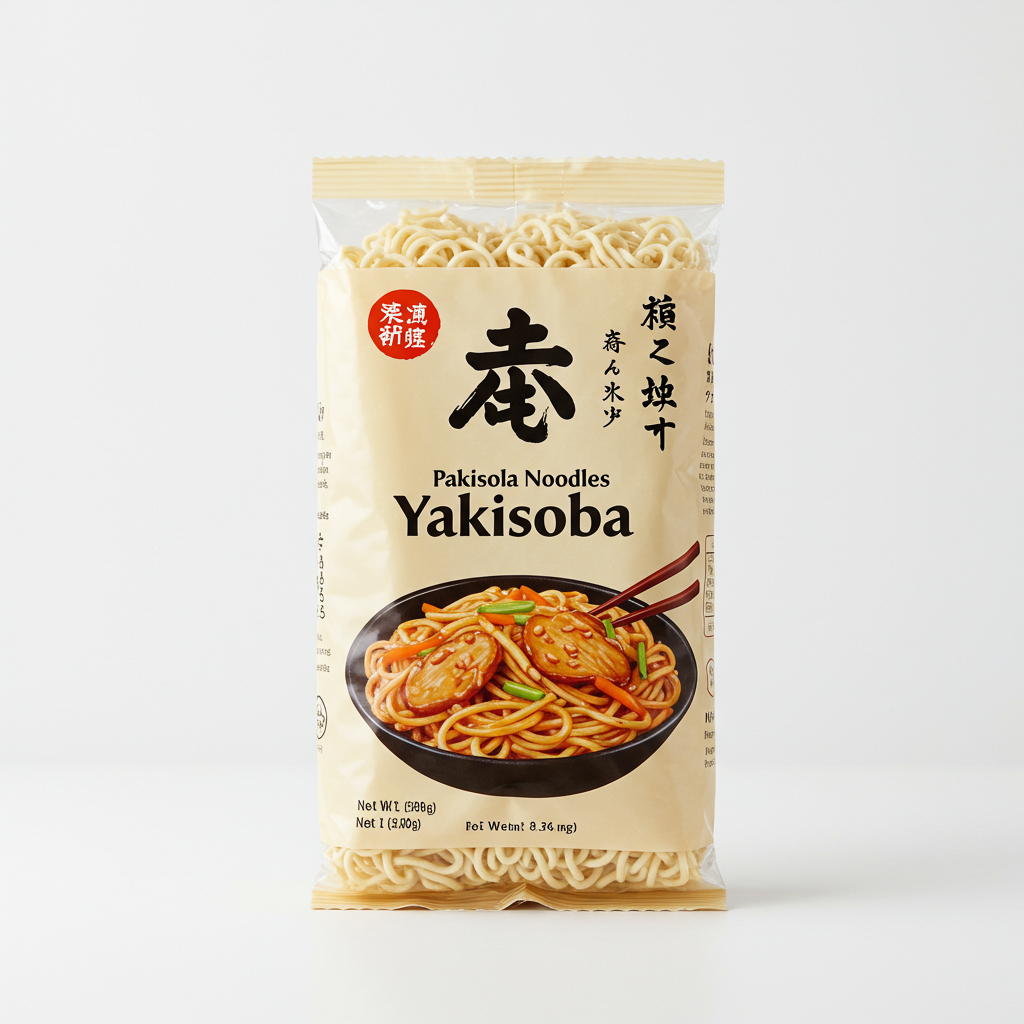
Yakisoba Noodle
See All
Health Info
Macros
131g
CARBS
1g
FAT
25g
PROTEIN
Allowed on these diets
LOW FAT
HIGH CALCIUM
VEGETARIAN
MEDITERRANEAN
LOW CARB
VEGAN
LACTOSE FREE
GLUTEN FREE

